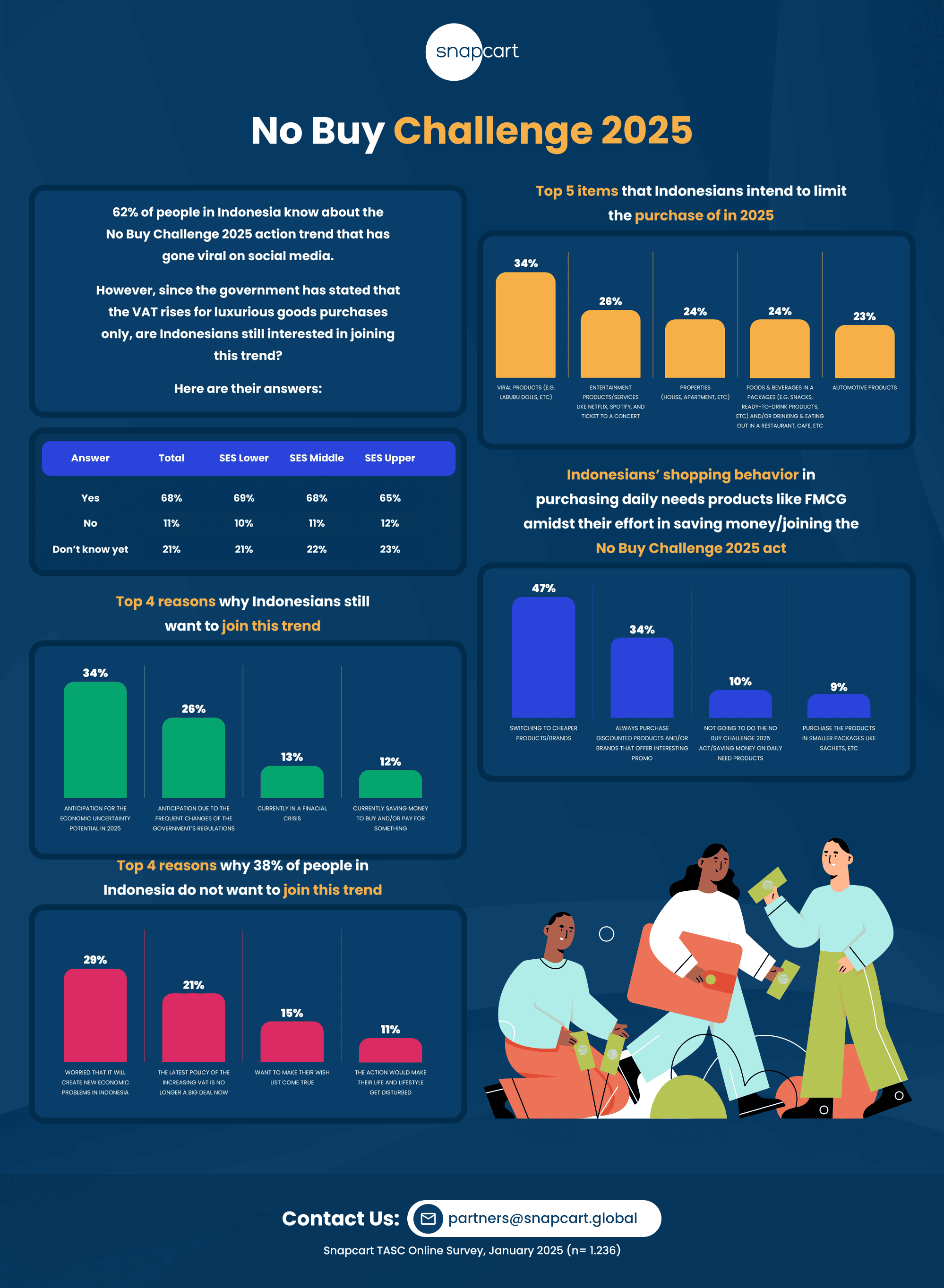In response to the increasing percentage of VAT to 12%, the No Buy Challenge 2025 act has become a trending on social media. Since the last December, this act has gone viral that any contents related to this movement have attracted the attention of many Indonesian viewers.
However, even though the Indonesian government has stated that the VAT rises for luxurious goods purchases only, and they are even willing to give the money back to those who have already paid for the 12% VAT [1], this act still popular on social media. Hence, in January 2025 Snapcart conducted a survey to discover how many people in Indonesia are interested in joining this act. Would it change their shopping behavior?

According to our 1.236 respondents, we found that 62% of Indonesians are aware of this challenge and 68% are participating in it, especially those who come from SES lower; nevertheless, 21% (dominated by people from SES upper) are still undecided about whether they will take this action and save more money this year or not.
Then, what is the main reason people decide to join in or opt out of this challenge? Is the rising of VAT still their primary motivation?
Reasons to Join or Opt Out of This Challenge
“Despite the government’s new policy toward the increasing level of VAT being the main reason that triggers the appearance of this challenge, Snapcart’s survey revealed that the primary motivation behind the commitment to do this challenge for most Indonesians is to get ready for the economic uncertainty in 2025, followed by their act of anticipation for the frequent changes of the government’s regulations,” said Haifa, Business Development & Corporate Marketing Associate of Snapcart, in Jakarta (15/1).
On the other hand, this research also figured out that the main reason why 38% of people in Indonesia remain hesitant to join this act is mostly because they fear this challenge might create another new economic issue, as represented in the infographic above.
The Effects of No Buy Challenge 2025 Toward Indonesian Consumers’ Shopping Behavior
In joining this act, our data shows that Indonesians plan to limit purchases, especially for:
- Viral products (34%)
- Entertainment (26%) – This includes streaming services, event tickets, and concerts.
- Properties (24%) – Such as housing and apartments.
- Food and beverages (24%) – Non-essential items like snacks, ready-to-drink beverages, and dining out.
- Automotive products (23%)
Nevertheless, how about daily need items like FMCG products?
To answer that question, this research revealed that even amidst the challenge, Indonesians are also adapting their spending habits in shopping for daily essentials. But 10% of our respondents stated they are not participating in the challenge when it comes to necessities, meanwhile the rest …
· 47% are switching to cheaper alternatives.
· 34% prefer discounted items and promotions.
- 9% continue buying products in small packaging, like sachets.
For more information, contact us at partners@snapcart.global or haifa.chairunisa@snapcart.global .
Source:





